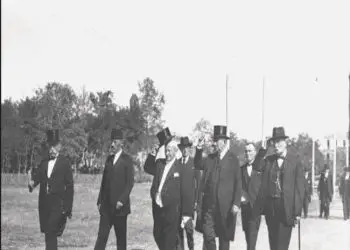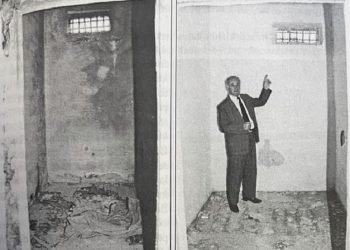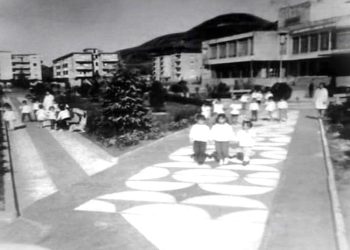By Sokrat Shyti
Part sixtieth
Memorie.al /The writer Sokrat Shyti is the “great unknown” who for several years has shown the tip of the iceberg of his literary creativity. I say this based on the limited number of his published books in recent years, mainly the voluminous novel “The Ghost Night” (Tirana 2014). The novels: “BEYOND MYSTERY,” “BETWEEN TEMPTATION AND WHIRLPOOL,” “THE DIGGING OF NIGHTMARES,” “THE SHADOW OF SHAME AND DEATH,” “COLONEL MAIN HAND,” “THE FADING HOPES,” “THE TWISTS OF FATE” I, II, “SURVIVAL IN THE COWSHED,” as well as other works, all novels with 350 – 550 pages, are in manuscripts waiting to be published. The dreams and initial enthusiasm of the young novelist, returning from studies abroad full of energy and love for art and literature, were cut short early by the harsh blade of communist dictatorship.
Who is Sokrat Shyti?
Having returned from studies at the State University of Moscow right after the rupture of Albanian-Soviet relations in 1960, Sokrat Shyti worked in “Radio-diffusion” (which at that time was located on Kavaja Street), in an editorial office with his journalist friends – Vangjel Lezho and Fadil Kokomani – both of whom were later arrested and subsequently executed by the communist regime. Besides the radio, 21-year-old Sokrat had passionate literary interests at that time. He wrote his first novel “Madam Doctor” and was on the verge of publication, but… alas! Shortly after the arrest of his friends, to fill the cup, one of his brothers, a painter, escaped abroad.
Sokrat was arrested in September 1963, and in November of that year, he was interned along with his family (his mother and little sister) in a place between Ardenica and Kolonje of Lushnje. For 27 consecutive years, the family lived in a cowshed made of reeds, without windows, while Sokrat was subjected to forced labor. During those 27 years, he was legally obliged to report three times a day to the local authority. He had no right to leave the place of internment, was deprived of any kind of documents, etc. In these conditions, amid a cowshed, he gave birth to and raised his children. Precisely from this event, or more accurately a very long story of persecution, he based his writing of the book “Survival in the Cowshed”!
Agron Tufa
Continued from the previous issue
EXCERPT FROM THE BOOK “SURVIVAL IN THE COWSHED”
The big man immediately caught the eye, not so much for his tall stature, but for his innocent appearance, with that pitiful look, as if he were asking for alms and help to fill his stomach, since he constantly felt a gnawing inside! When I first noticed how greedily he ate so many rations, I got the impression that he must have a tape in his stomach, which immediately swallows his food, so the gastric juice has nothing to digest!
So I expressed my opinion to Commander Ali, telling him that he must visit without fail, and in this case, go to the central clothing warehouse, to find a pair of shoes size forty-five, (since we are not allowed to let a soldier walk barefoot)! At the exact moment when the arrival of the “Jeep” was expected from second to second, Halim’s absence gave us the opportunity to explain his real situation, to reinforce the reasoning why he was not lining up with the other soldiers.
“Gaz” 69 braked in front of the dormitory. Commander Aliu gave the command to get ready, took a straight stance and with a long stride went to report. But the driver, a young man in a soldier’s uniform, opened the door and without getting out told the lieutenant that he had come on the orders of the FUD commander, to take the journalist with him.
– “Now are you convinced of my prediction?” – Lieutenant Aliu whispered to me. – The famous commander is interested in you! I am glad”!..
I shook the commander’s hand, and took a seat in the front seat with the driver. The “Jeep” took the turn and set off at speed.
– “Have you had the opportunity to meet Commander Qamili before?” – the driver asked me after a while, when we got out on the asphalt road.
– “I have only heard about the fame and great name”, – I answered.
– “You must have heard the name and fame of this commander, whom all of Albania knows”! – the driver emphasized proudly.
– “You must feel special pleasure, being in the service of this great soldier, who yesterday in the war sealed with rare courage and bravery acts of manhood”! – I added.
When we arrived at Plepat, the “Jeep” headed to the checkpoint of military buildings, built during the Italian occupation, especially for the coastal command. At the moment the soldier driver went to inform the commander’s secretary, I was overcome with emotions of expectation, because I again felt uncertain, because I did not know what attitude he would have towards me.
Perhaps this state was caused by the fact that in my personal sensitivity, the shadow of the military uniform took on dimensions with a bitter and heavy taste, and adapting to people in uniform in my mindset became more complicated and difficult, in some cases beyond normal. Under the influence of this mindset, the military position seemed more powerful and mysterious to me than it really was. For example, I do not know why I imagined Commander Qamili to be more authoritative than the president of the Supreme Court, or the first secretary of the Party Committee of the Lushnje district, with whom I had talked!
During my time as a journalist at the Radio, I had had the opportunity to enter several spacious offices of very high-ranking officials. But in none of these did I experience such turbulent confusion as at this moment, standing frozen before the famous commander, although in general terms the reason for my visit (as far as I knew) did not pose a serious direct threat to me. He glanced at me from head to toe, almost as if I was a top model, and I was given the task of presenting some military clothing to a committee.
Without a word, he pressed the button of a bell on his desk. In a second the secretary appeared, frozen in place.
– “Urgently report to the head of the clothing department!” – he ordered in a powerful metallic voice. (The secretary turned around and disappeared)
– “You know as well as I do that the radio and the press reflect reality much faster than anything else. Especially in tense situations, the people must calm down, to eliminate the traces of panic that has spread hostile foreign and domestic propaganda. The case brought you to be an integral part of the FUD and BUD. Your main task at the moment we are talking is to reflect the revolutionary pathos of the soldiers and officers of our Armed Forces.
You have at your disposal a tape recorder, a ‘Jeep’, a microphone, and other radio equipment. I want the morale of our troops to be reflected at the height that belongs to Albanian pride! We are the eagles of the mountains and the sea! No imperialist and revisionist warship or aircraft carrier will touch or harm the shores of our Homeland! You must successfully fulfill this task”!
There was a knock on the door. The secretary announced the arrival of the chief of the clothing department.
– “Come in!” – a metallic voice rang out. –
– “Do you see this military journalist?” – He addressed the officer who was standing at attention. – You will give him the newest parade uniform and new leather brogues, with all the necessary equipment”!
– “When will I leave for the reports?” – I asked the commander, when the chief came out.
– “Time waits for nothing. Here is your work plan. You will start with Durrës. You will have the driver as your guide. All the points have been announced in advance, and measures have been taken to wait. I am confident that you will succeed.”
A soldier accompanied me to the clothing warehouse. The non-commissioned officer who served here placed five boxes of folded uniforms in front of me for me to try on. These were made of quality cloth, in small quantities, and are certainly used for very rare occasions, when official protocol requires it.
– “Fold your uniform and put it inside the box, as you will leave it here with your shoes, so that when you finish your service, you can exchange it,” said the non-commissioned officer, when I chose which one would fit me best.
– “I think I will take it with me, considering that during the journey I will use my regular uniform, while when I record the leading officers, as the case may be, I will be filmed or photographed, I will wear the new uniform. I will put the box with the new uniform and shoes in my backpack. I have another request – I added, when the chief of the clothing department approached us: – In the new company, in the village of Hamallaj, with Lieutenant Commander Ali Hana, a large soldier has been left barefoot”!
– “How is that possible?!… – the chief asked in awe. – I have been dealing with army clothing for so many years, and I have never heard of such a strange shortage! No matter how large he is, shoes with a size 45 should do. But since this is an extraordinary case, I say that he should be checked medically, to see if he has gigantism, – he expressed his opinion.
– “I completely agree with your opinion, comrade chief! – I replied. – Because in addition to the problem of the size of his feet, this soldier has something more worrying: not even ten rations will satisfy him”!
– “He is a dog, not a man”… – said the chief, quite surprised.
– “I can’t even eat a loaf of bread worth forty ALL and a pot of soup!” – I added as reinforcement.
– “If he is like that, he should appear before the forensic medical commission of our department, so that it can be determined whether he is capable of performing compulsory military service”, – the chief emphasized.
– “You did very right, comrade journalist, to raise this issue. If you had time, we could go together to the chief physician”.
– “Thank you for your concern and readiness! But Commander Qamili ordered me to leave immediately. I will be grateful to you to follow up and solve this very delicate problem”!.. And after I put the new packed uniform, along with the shoe box in my backpack, I thanked once again the chief of clothing, who undertook to carry out this task.
We set off towards the village of Hamallaj, to see the situation and talk with the leading officers, what special thing they have added to the training plan on the occasion of readiness number one, in addition to the intensive political work, to instill complete conviction in the soldiers, that our Armed Forces are capable of successfully confronting and defeating any aggressive attack from land, air and sea.
I stopped in front of our dormitory to meet and explain to Commander Ali the task assigned, as well as the concern for the barefoot soldier, informing him that one of the staff doctors might come, or the supply truck that will bring food will take Soldier Halimi with it, when it returns, to give him a medical check-up.
– “After doing a great job of raising the problem of Soldier Halimi, that we would have a hard time with the work… – said the company commander. – That means for a while, I will face all the troubles alone”!… . he added in despair.
– “Why alone? Didn’t we talk on the way about the soldier from Peshkopia, who worked in the Tourism kitchen? He has experience: he knows how to cook and keep the supply account. As for political work, don’t worries too much, just read the daily press”.
– “You saved me from a great embarrassment”! – said the lieutenant, hugging me.
– “The main thing for you, as a commander, remains the training side and maintaining a high level of readiness. You must bear in mind that we are a reserve contingent, not on the front line. For us, it is of primary importance that everyone is present in case of a surprise check, and that they know how to disassemble and assemble the automatic machine. However, we will maintain radio contact…”!
– “Where will you sleep and eat?” – asked Commander Aliu.
– “For as long as I will be on duty in the BUD units, I will have a bed as a sleeping place in the Officers’ House, in the former Zogu villa. I will also leave my equipment here. As for eating, since I am a guest, it is up to the commanding officers to treat me…”, – I said, laughing.
The summer months were spent walking along the Adriatic and Ionian coasts, through all the points of the special units. Equipped with special authorization, from the FUD command. So I moved quite freely throughout this territory.
After a three-year separation from Radio, from the moment I was thrown out as a declassed individual, a mental and spiritual renewal began to appear in my being, thanks to the opportunity to perform the duty of a journalist in military uniform, moreover in much better conditions than when I was the editor of the Rinija show, since I had a safe trip, with a “Jeep” at my disposal, and a specialized team took care of the editing of the show.
The broadcasts and reports were distributed throughout the FUD and BUD areas, through the sound centers, at the hours determined by the chief of press and propaganda, when the soldiers went to the canteen to eat and after political work.
The main leaders of the military units gave warm impressions, which significantly increased my enthusiasm and desire to devote myself to this task, and this dedication restored the missing dignity, removed the internal stress of the traps and the arms races.
A stimulating enthusiasm was observed after listening to the first broadcast among the soldiers and officers, who welcomed it and it became an integral part of daily conversations, a necessary excitement, because it described with realism and truth, life full of vitality and dynamism, in the political and spiritual direction, a harmonious fusion between duty and feeling, exactly what was required in this extremely tense period.
Very soon, requests arrived to increase the show’s time. There were also proposals that, in addition to the reports, dramatized parts be given, interpreted by soldiers and officers. I was happy to send this interesting proposal, despite the fact that my workload increased, and I significantly increased the pace of work.
I began to stage mainly humorous events, which the soldiers and officers told during free conversations. After I finished writing, I read them in front of them, and assigned the roles. Of course, I myself performed the duties of the director. Memorie.al
To be continued in the next issue




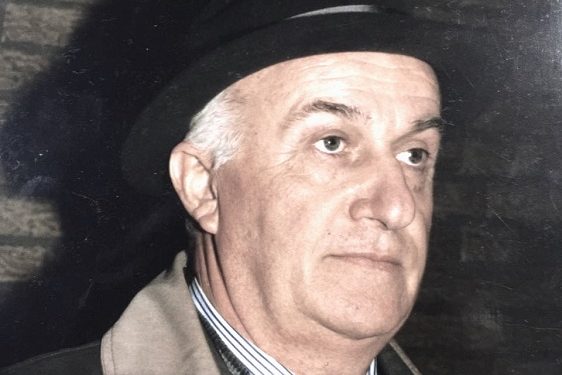
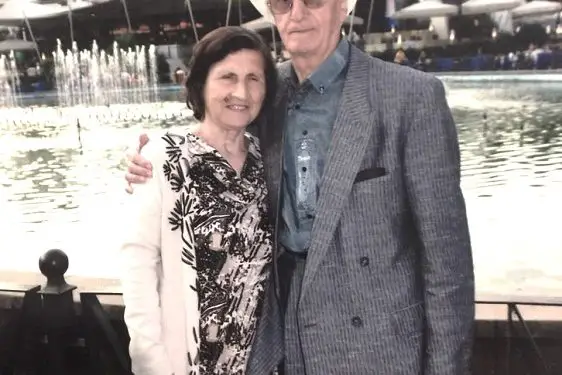
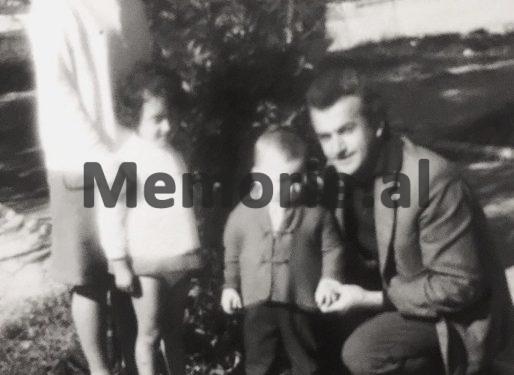
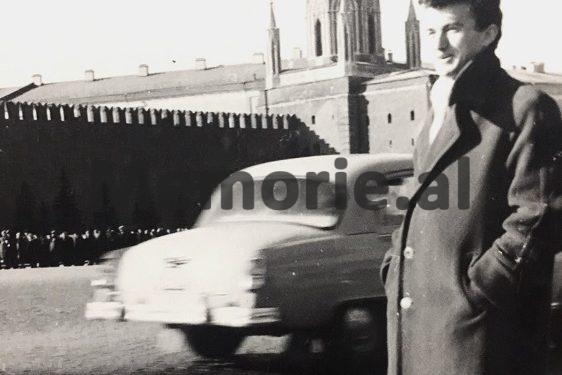
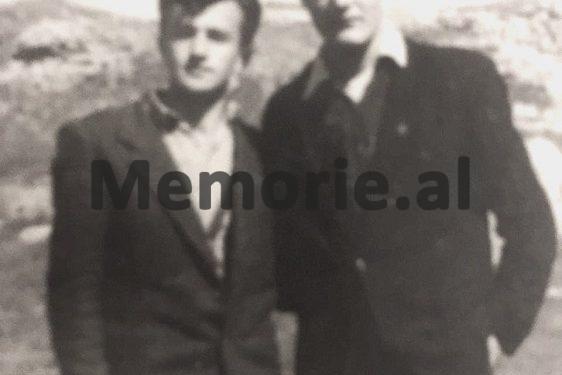
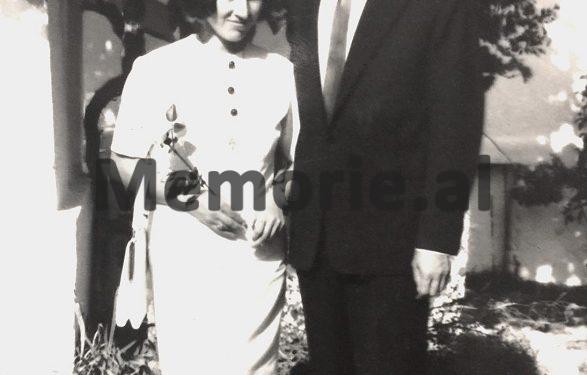

![“After the ’90s, when I was Chief of Personnel at the Berat Police Station, my colleague I.S. told me how they had once eavesdropped on me at the Malinati spring, where I had said about Enver [Hoxha]…”/ The testimony of the former political prisoner.](https://memorie.al/wp-content/uploads/2024/09/admin-ajax-4-350x250.jpg)
